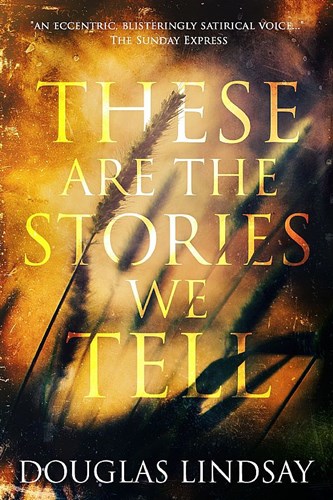
Excerpt from THESE ARE THE STORIES WE TELL
Added at 11:23 on 21 January 2021
Here’s a short excerpt from THESE ARE THE STORIES WE TELL, the thrilling new literary crime novel that the critics are calling, ‘a thing by the guy who wrote that other stuff.’
I don’t know how often detectives stand over cadavers in the morgue with the pathologist, chewing the fat. It happens on shows, so we generally presume it happens in real life. I’ve never checked. I do, however, always have multiple scenes with detectives standing over cadavers in morgues. It’s a nice counterpoint to whatever they’re talking about – which is not necessarily the opened-up corpse before them – and much better than the detective reading an e-mailed report, which is presumably what usually happens in reality.
I stretch it a little in this novel, because there’s only one murder, and there’s really no reason for my detective to continually visit the pathologist. But I enjoyed the conversations between the two, so it happens a few times, stretching of the narrative be damned.
This is early on, and helps set the background to the story, with a long, ugly heatwave, and the country collapsing…
There was a hush over the room, bar the low hum of electrical equipment. Two of them looking down at the body of the dead child. Words there to be spoken, but not yet. Faraday and Grant, in the mortuary, bound by silence, the sound of this investigation.
Standing in the air-conditioned room felt like luxury. How wonderful to work in here, this long, blasted summer, thought Faraday. This is what decadence feels like, spending time with the dead a price worth paying.
The use of private air conditioning units had already been banned. Too big a drain on the depleted national grid. The UK was grinding to a halt beneath the weight of the heat. Roads melting, train tracks buckling, buses and trains and trams cancelled all over, emergency services stretched far beyond breaking point. Food was short and water shorter, people were dying, the government in Westminster hopelessly unprepared and understaffed. Protest marches and riots, the capital under siege, the government blaming the mayor, the mayor blaming the government, not a person in the land prepared to accept responsibility for anything.
And everyone knew that when they came, when the rains finally came, there would not be relief, but brutal and uncontrolled flooding. In any case, there was no sign of that rain, nothing on which to hang the merest shred of hope.
‘The air conditioning is glorious. You must want to live here full-time.’
Finally, words to ease the silence aside.
‘Corpses notwithstanding,’ said Grant.
‘Some nights I’d live with the corpses.’
‘There are two things,’ said Grant. ‘The chill of the day makes the heat of the night more bearable. I like sleeping beneath a fan. Naked. You should try it, if you haven’t already. And this, this necessity here where the dead are kept cold for as long as we need them to be, is about to be brought to an end.’
Faraday had slept naked beneath a fan every night since Noah had gone. She didn’t feel the need to share.
‘Really?’
‘No money. No power. This heatwave continues, then phht!’ and she jerked her thumb across her throat. ‘Undertakers are going to have to step up to the plate.’
‘I thought they were already miles behind the curve? I read a thing about there being a near two-month waiting list for burial.’
‘There is. There’s talk of mass graves.’
Faraday’s eyes widened in response; Grant shrugged.
‘You honestly surprised? It’s a shitshow. Literally everything is a shitshow.’
‘Jesus.’
‘Yeah, Jesus, because he’d know what to do. I don’t have much for you, by the way.’